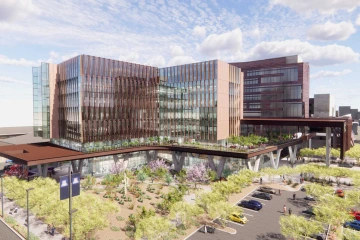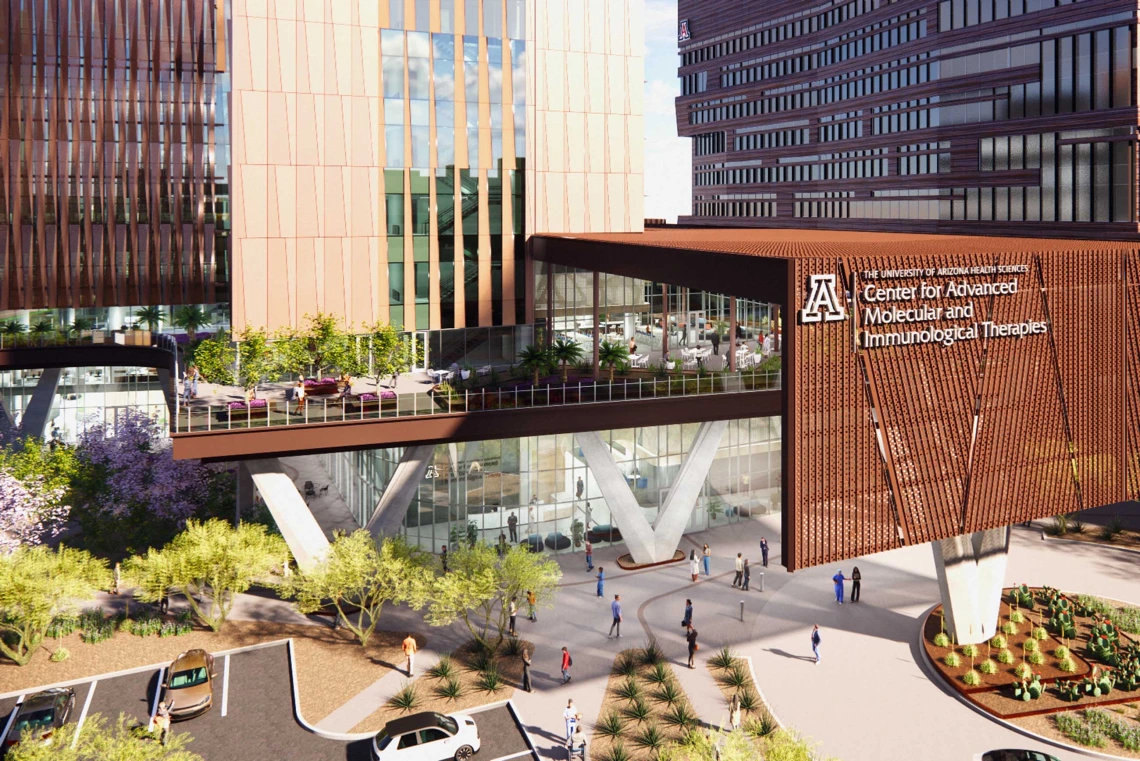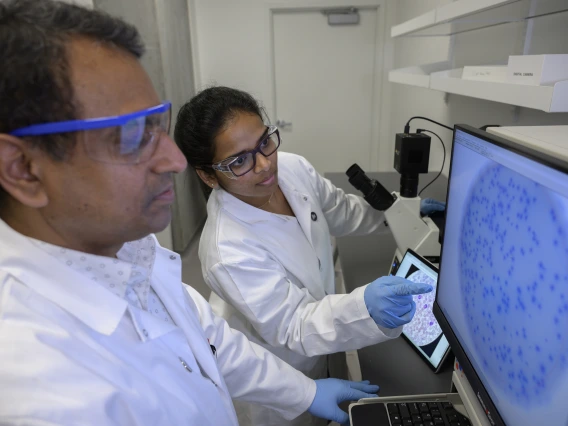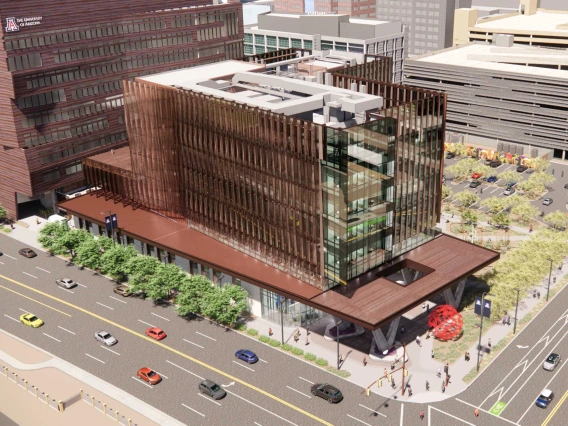Center for Advanced Molecular and Immunological Therapies
“As the state’s sole academic medical center, the University of Arizona Health Sciences has unique expertise in basic science, translational medicine and investigator-led clinical trials that will allow us to lead the nation in advanced immunotherapies research and the pursuit of innovative treatments.”
Michael D. Dake, MD
Senior Vice President University of Arizona Health Sciences
The Center for Advanced Molecular and Immunological Therapies, or CAMI, will be a national biomedical research hub in Phoenix to unravel the complexities of the immunology of cancers, infectious diseases and autoimmune conditions. The goal is to develop novel strategies for the diagnosis, prevention and treatment of diseases.
Researchers and physician-scientists are increasingly using precision medicine to develop new cell- and gene-based therapeutical options for diseases, building on the idea that the most effective defense against health issues is the body’s natural immune system. CAMI will accelerate the pursuit of therapies already underway at the University of Arizona Health Sciences, open new doors of discovery and advance precision medicine to improve health outcomes for people across Arizona and around the world.
Building an Anchor for Innovation in Phoenix

The CAMI Advisory Council’s desire to engage the local and scientific community will be reflected in the unique building design.
Courtesy of McCarthy + SmithGroup (rendering for illustrative purposes only)
CAMI will serve as the anchor for an innovation district that will establish the Phoenix Bioscience Core as a center of research, startup activity and corporate engagement. CAMI will be joined at the PBC by the University of Arizona Office for Research, Innovation and Impact.
- The new seven-story, 200,000-square-foot building complex is being designed to house up to 40 principal investigator-led research groups.
- Student education will be prioritized in learning spaces dedicated to academic programs that will allow CAMI faculty and researchers to mentor and train the next generation of scientists.
- Life sciences innovation centers contribute significant positive financial impact: launching new companies, attracting new corporate operations, creating jobs in a rapidly expanding economic sector and enhancing educational opportunities – all of which benefit local municipalities and state governments.
- Economic gains could be as high as $4.8 billion, according to an analysis by Rounds Consulting Group, of Tempe, Arizona. Economic impact estimates show a return on investment of 2.5-to-1 within 10 years, with CAMI attracting more than 150 companies to greater Phoenix and at least 7,500 new bioscience-related jobs and 13,000 supporting jobs.

CAMI, to be located at the corner of East Fillmore Street and 7th Street in downtown Phoenix, will establish the Phoenix Bioscience Core as a hub of cellular and gene therapy research, startup activity and corporate engagement.
Courtesy of McCarthy + SmithGroup (rendering for illustrative purposes only)
Advancing Precision Medicine Through Proven Expertise
If you would like to learn more about CAMI or would like to support molecular and immunological therapies research contact us for more information.




